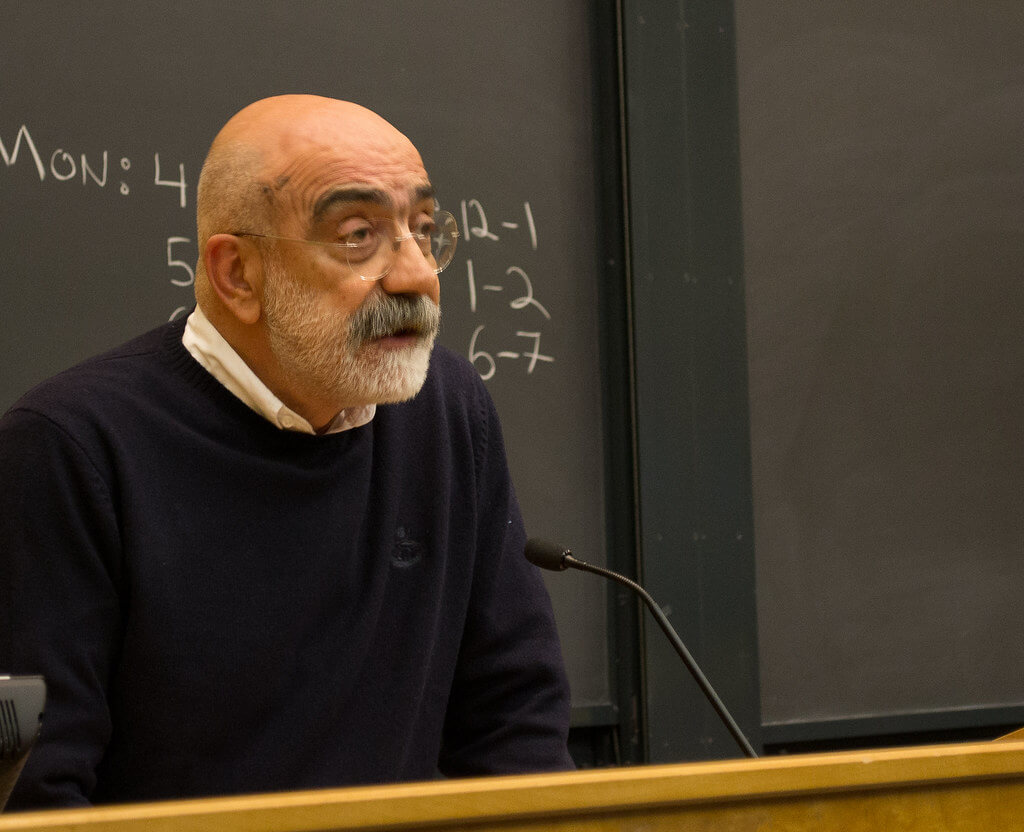After spending more than four years in prison, a Turkish court has released prominent journalist and human rights advocate, Ahmet Altan.
The court of cassation, Turkey’s top appeals court, overturned charges which implicated him in the failed coup attempt of 2016 – charges which Altan had always denied. The development came on Wednesday 14 April, just a day after the European Court of Human Rights demanded the 71-year-old’s freedom.
Speaking from his home in Istanbul, Altan said:
“I don’t know how I got out. I was sitting [in prison] and all of a sudden I was told this evening that I would be released…I just saw my children. I will now spend some time with them.”
Confirming the release on Twitter, Altan’s lawyer Figen Albuga Çalıkuşu wrote “my client is being DISCHARGED” adding that universal laws and values are “infallible, but legal bullying is recorded.”
Altan is a well known novelist and journalist and topped the December 2020 One Press Freedom rankings of the “most urgent” press freedom case in the world. Despite being charged with disseminating subliminal messages relating to the coup attempt during a TV programme, he was jailed after writing several critical pieces of the President Erdogan and in support of Kurdish rights.
Amnesty designated Altan as a “prisoner of conscience” after he was sentenced to life imprisonment – a ruling later reduced to 10 years and six months when re-examined by a Turkish court.
Upon hearing the news, the European Parliament’s Turkey rapporteur, Nacho Sanchez Amor, tweeted:
“Very happy to hear Turkey’s court of cassation has just ordered the release of novelist Ahmet Altan after more than 4.5 years in jail…Will be even happier after seeing him enjoying fully his freedom and all charges dropped. Hope all other [ECHR] rulings will be applied too.”
Altan’s release comes at a time in which President Erdoğan is attempting to mend fractured relations with the European Union and build closer ties with the new Biden administration in the US.
Despite Turkish officials arguing that the courts operate independently from the President, it is widely accepted that they operate according to the wishes of the executive office.
Turkey has repeatedly been on the receiving end of condemnation within the European Union. EU leaders highlighted Turkey’s deteriorating human rights record during a summit in Ankara last week and the European Court of Human Rights condemned the Turkish state 154 times between 2000 and 2019.
In their most recent ruling the Strasbourg-based rights court found “no evidence that the actions of the applicant had been part of a plan to overthrow the government” and ordered Altan’s immediate release and the payment of €16,000 in damages for violating his rights to freedom of expression.
Biden’s White House has also signalled a much stronger commitment to upholding global human rights than his predecessor.
Turkey remains the world’s worst jailer of professional journalists and ranked 154th in Reporters Without Borders 2020 Press Freedom Index. It will be hoped that the release of Altan signals a shift in Turkey after years of regression on human rights.

